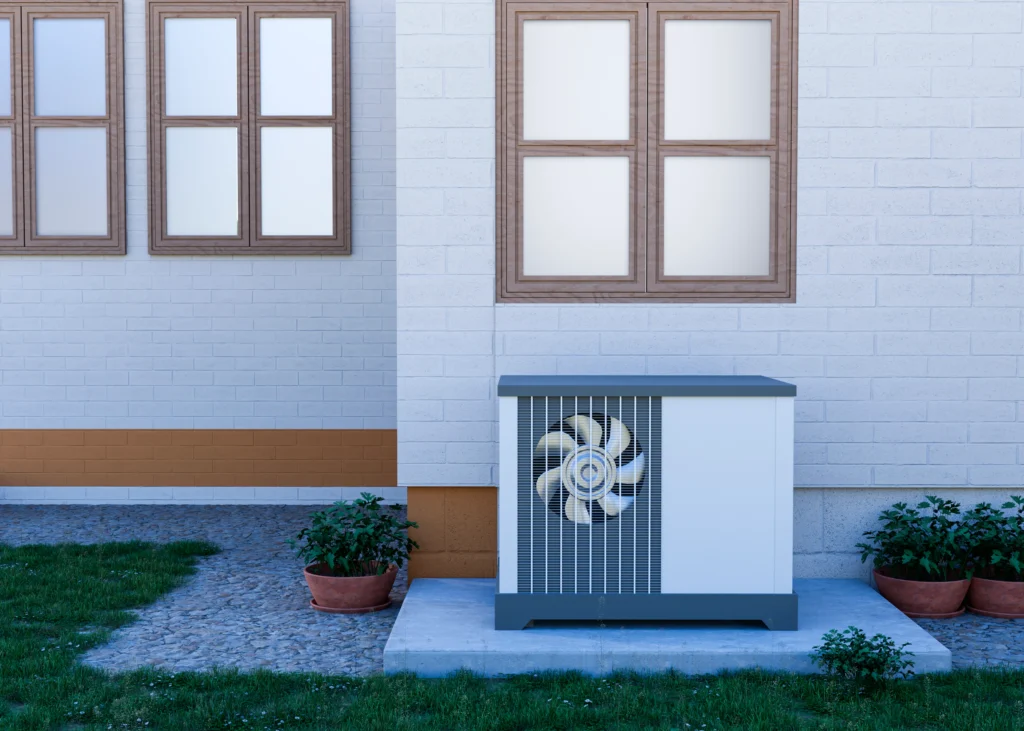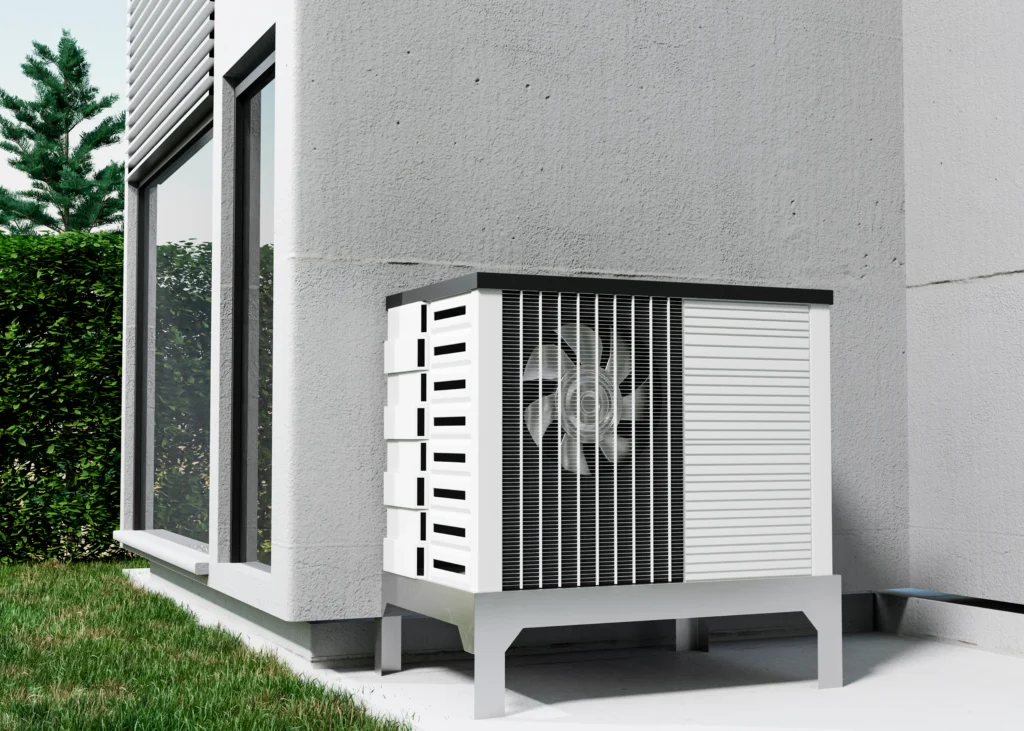In the ever-evolving landscape of home comfort and energy efficiency, the decision to replace AC with heat pump can usher in a host of benefits. The conventional approach of relying solely on air conditioners for cooling and separate heating systems for warmth is being eclipsed by the versatility and eco-friendly features offered by heat pumps. This paradigm shift is driven by the need for more sustainable solutions, cost-effectiveness, and a desire to embrace technologies that serve both heating and cooling needs.
In this exploration, we delve into the compelling reasons behind considering the switch to an air-source heat pump, examining how it can not only transform your home’s climate control but also contribute to long-term energy savings and environmental stewardship.
From the dual functionality to energy efficiency, lower operating costs, and a quieter operation, the advantages of embracing this innovative HVAC technology are poised to redefine the way we approach indoor comfort and energy consumption. This article will tell you all about how you can Replace AC with Heat Pump.
Table of Contents
ToggleReasons To Replace AC With Heat Pump

Replacing an air conditioner with an efficient air-source heat pump can offer several benefits, both in terms of energy efficiency and cost savings. Here are some reasons why you might consider replacing the AC with heat pump:-
- Heating and Cooling in One System: Air-source heat pumps can provide both heating and cooling functions. This dual functionality eliminates the need for a separate heating system, streamlining your home’s HVAC (heating, ventilation, and air conditioning) system.
- Energy Efficiency: Heat pumps are known for their energy efficiency. Unlike traditional air conditioners that only move heat out of the building, heat pumps can extract heat from the outside air even in colder temperatures. This makes them more energy-efficient and cost-effective, especially in moderate climates. So it is better to replace AC with heat pump.
- Lower Operating Costs: Due to their ability to extract heat from the outdoor air, air-source heat pumps can be more cost-effective to operate than traditional heating systems, particularly in regions with mild winters. They can offer significant savings on your energy bills over time, which is one of the top reasons to replace ACs with heat pumps.
- Environmental Benefits: Air-source heat pumps typically have a lower environmental impact compared to traditional heating systems. By utilizing heat from the air, they reduce the reliance on fossil fuels, resulting in lower greenhouse gas emissions and contributing to a greener, more sustainable home.
- Government Incentives: In some regions, there are government incentives and rebates available for installing energy-efficient HVAC systems, including air-source heat pumps. Taking advantage of these incentives can help offset the initial cost of the system and make the switch more financially attractive.
- Improved Home Value: Upgrading to an efficient and environmentally friendly heating and cooling system can enhance the overall value of your home. Many homebuyers are increasingly interested in energy-efficient features, which can make your property more appealing on the market.
- Quiet Operation: Air-source heat pumps often operate more quietly than traditional air conditioners and heating systems. This can contribute to a more comfortable and peaceful indoor environment.
- Long-Term Savings: While the upfront cost of installing an air-source heat pump may be higher than a traditional air conditioner, the long-term savings on energy bills and potential repair costs can make it a cost-effective investment over time.
Before deciding to replace HVAC with heat pump, it’s essential to assess your specific climate, heating and cooling needs, and the cost-effectiveness of the installation in your particular circumstances. Consulting with HVAC professionals can help you determine the most suitable and efficient solution to replace AC with heat pump for your home.
Tips To Replace AC With Heat Pump
While you are replacing your air conditioner, make sure that you adhere to the tips below so that you can replace AC with a heat pump.
Access Your Heating And Cooling Needs
Before making the switch, assess your specific heating and cooling requirements. Consider factors such as the climate in your region, the size of your home, and your existing HVAC setup. Understanding your needs will help you choose an appropriately sized and efficient air-source replacement for your air conditioner.
Consult With HVAC Professionals
Seek the expertise of HVAC professionals to evaluate your current system, discuss your goals, and determine the feasibility of replacing your air conditioner with a heat pump. They can provide valuable insights into the specific requirements and potential challenges associated with the installation.
Energy Efficiency Ratings
Compare the energy efficiency ratings of different air-source heat pumps. Look for systems with a high Seasonal Energy Efficiency Ratio (SEER) for cooling and a Heating Seasonal Performance Factor (HSPF) for heating. Higher ratings indicate better energy efficiency and cost savings over time.
Government Incentives And Rebates

Check for available government incentives, rebates, or tax credits for installing energy-efficient heating and cooling systems. These incentives can significantly reduce the upfront costs of transitioning to a heat pump, making the investment more financially appealing.
Budget For Installation Costs
Budget for the installation costs, which may include the purchase of the heat pump, labour, and any necessary modifications to your existing HVAC system. While air-source heat pumps can be more expensive upfront, consider the long-term savings on energy bills and potential rebates when evaluating the overall cost.
Plan For Regular Maintenance
Develop a plan for regular maintenance of your new heat pump. Regular servicing ensures optimal performance and longevity. Discuss maintenance requirements with your HVAC professional and establish a schedule for inspections, filter changes, and other routine tasks.
By going through all the tips and suggestions, you should replace AC with heat pump so that you won’t have to face any repercussions in the future.
FAQ More About Replace AC With Heat Pump
Why Is Heat Pump More Efficient?
Heat pumps are more efficient because they transfer heat rather than generate it, utilizing electricity to move heat from one place to another rather than creating heat through combustion.
Are Heat Pumps 100% Efficient?
No, heat pumps are not 100% efficient. While they can be highly efficient, their efficiency depends on factors like temperature differentials, system design, and maintenance.
What is the Main Heat Source Used in a Heat Pump System?
Heat pumps primarily utilize outdoor air as the heat source for heating your home during the winter months. They extract heat from the air and transfer it indoors.
What is Involved in the Installation Process When Replacing an AC with a Heat Pump?
The installation process for replacing an AC with a heat pump involves assessing the existing HVAC system, selecting the appropriate heat pump unit, removing the old AC components, and installing the new heat pump system.
How Does a Heat Pump Replacement Compare to Replacing Traditional Air Conditioners?
When replacing an air conditioner with a heat pump, you’re upgrading to a more versatile system that provides both heating and cooling. This can result in increased comfort and energy savings over time.
Are Air-Source Heat Pumps a Suitable Option for Homes Looking to Reduce Energy Costs?
Yes, air-source heat pumps are energy-efficient systems that can help reduce energy costs, especially in regions with moderate climates. They provide both heating and cooling using electricity, making them a cost-effective option for home electrification.
What are Some Upfront Costs Associated with Replacing an AC with a Heat Pump?
Upfront costs for replacing an AC with a heat pump may include the purchase price of the heat pump unit, installation labor costs, any necessary modifications to the existing HVAC system, and potential upgrades to improve energy efficiency. However, these upfront costs can often be offset by long-term energy savings.
Conclusion –
Replacing your traditional 75-degree AC with an efficient air-source heat pump offers numerous benefits. Not only does it provide both cooling and heating functions, but it also operates more efficiently, reducing energy costs and environmental impact. With its versatility and eco-friendly features, an air-source heat pump is a wise investment for comfort and sustainability in any climate. Please go through the whole article to understand why it is significant to replace AC in heat pumps in today’s world.
